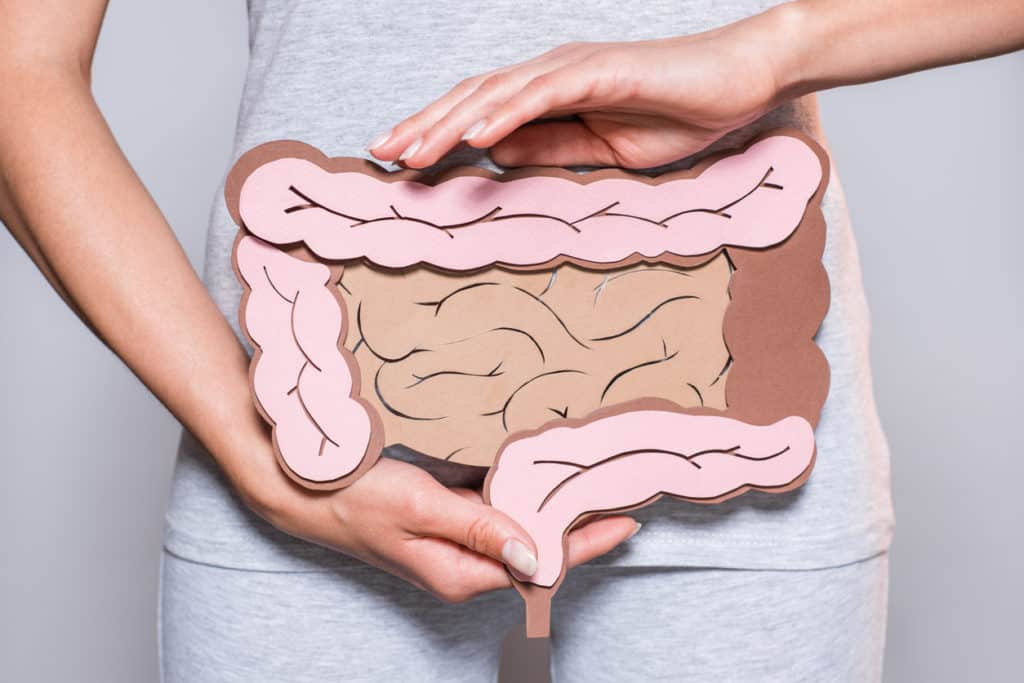
Common Occurrence
Reflux, indigestion, nausea, constipation, diarrhoea, flatulence… Any of these sound familiar?
Digestive problems are extremely common. According to Australia’s Health Survey 2012, approximately 1 in every 10 Australian adults experience digestive problems on a daily basis!
Almost all of us have suffered from a digestive upset at some point in our lives. In most cases, they last only a short period of time, and we don’t think much of it after it’s past. For others, digestive problems can last for longer periods of time, reoccurring sporadically or continually.
Regardless of the duration, digestive problems can have a debilitating impact on your quality of life. A single meal choice can ruin your day or a special event. Embarrassing symptoms can send you running to the bathroom or leave you hunched over with pain, not wanting to leave the house. So, at what point do you stop ignoring these symptoms? Who do you see?
Apart from the obvious eating past the point of fullness or eating too quickly, some problems will warrant a trip to the doctor or dietitian or even both! A qualified dietitian (aka Accredited Practising Dietitian, or APD) understands how frustrating and embarrassing GI symptoms can be and will help you to nutritionally manage many digestive problems.
Common Causes of Digestive Problems
To help navigate your way through your digestive issues, here is a quick summary of the most common digestive problems and how a dietitian can help:
1. Irritable Bowel Syndrome (IBS)
IBS is a chronic condition that is characterised by altered bowel habits and abdominal discomfort, mainly in the large intestine. In Australia IBS is a very common problem with 1 in 5 adults reporting uncomfortable symptoms. Interestingly, IBS is twice as common in women than men.
Common Symptoms:
- Bloating
- Abdominal pain
- Diarrhoea
- Constipation
- Reflux
- Fatigue
Nutritional Management: Unfortunately, there are no specific tests that can diagnose IBS as the condition does not cause any detectable abnormalities in your digestive tract. However, because IBS can effect everyone differently, symptoms can last from a couple of days to a few months depending on how they are managed. Seeking help from a qualified dietitian about how to manage your symptoms and improve your quality of life will make a huge difference!
Here is how a dietitian could help:
- Understanding the frustration when establishing which foods or situations are triggering symptoms. A dietitian can help you identify these foods by investigating possible food intolerances in several ways, including through the low FODMAP process.
- Assessing what you eat and drink regularly, to make sure you are eating enough fibre and fluids.
- Making other practical suggestions to manage your symptoms like trialling probiotic therapy.
2. Inflammatory Bowel Disease (IBD)
Unlike IBS, IBD is characterised by chronic inflammation of the digestive tract and your doctor (medical team) can confirm a diagnosis through blood tests, stool tests or a colonoscopy. The two most common forms of IBD are Ulcerative Colitis and Crohn’s Disease.
According to Australia’s Health Survey 2012, it is estimated approximately 70,000 Australian adults are living with IBD and the number of hospitalisations for Ulcerative Colitis (UC) and Crohn’s Disease have almost doubled in the past decade!
Common Symptoms:
- Diarrhoea
- Constipation
- Abdominal pain
- Loss of appetite
- Weight loss
- Blood in stools
- Aching joints and fever
Nutritional Management: There is conflicting nutrition advice on the internet regarding food choices and IBD, with one website condemning the other websites’ proposed diet. This can be extremely frustrating and confusing! You may ask, why all the conflicting nutrition advice? Well simply, there are currently no evidence-based nutrition guidelines for the management of IBD. Therefore, nutrition management is highly based on the individual. Talking to a dietitian about finding the right food choices for you can help to manage Crohn’s or UC symptoms and prevent future ‘flare ups’.
Here is how a dietitian can help:
- Understanding how frustrating symptoms can be. A dietitian will work with you to devise a plan on how to best manage your symptoms to improve and maintain quality of life.
- Reintroducing foods back into your diet, or suggest a supplementation routine!
3. Food Intolerances (aka: Non-allergic food hypersensitivity)
Food intolerances are more common than food allergies and are described as the delayed, non-life threatening response to chemicals present in foods (either naturally or added). While they are commonly confused with food allergies, food intolerances do not involve the immune system and symptoms often vary depending on individual tolerance levels.
Common Symptoms:
- Bloating
- Cramps
- Diarrhoea
- Constipation
- Gas
- Skin rashes
- Headaches
- Vomiting and nausea
Nutritional Management: Investigating food intolerances can be a long and frustrating path! Especially considering food intolerances can be difficult to identify. The good news is that you do not have to go down this path alone. Seeking help from an Accredited Practising Dietitian will simplify this journey by systematically investigating the relationship with the foods you eat and your symptoms.
A dietitian can help by:
- Getting to know the foods you commonly eat and your symptoms. A dietitian can modify and trial a diet, like the low FODMAP process or RPAH Elimination Diet.
- Providing practical and simple advice when catering for a food intolerance once one (or a couple) have been identified. A dietitian can make life simple by helping you with label reading, food swaps and recipe changes to make sure you continue to eat a nutritious diet.
4. Coeliac Disease
In Australia approximately 1 in 70 adults have coeliac disease at any given point, however, approximately 80% remain undiagnosed. Coeliac disease occurs when the immune system abnormally responds to gluten, causing inflammation and damage to the small intestine reducing nutrient absorption.
Common Symptom:
- Diarrhoea
- Bloating
- Abdominal discomfort
- Weight loss, fatigue
- Nutrient deficiencies
- Bone and joint pain
- Recurrent mouth ulcers
- Irritability
- Skin rashes
- Infertility
Nutritional Management: Transitioning to a gluten free diet without compromising your nutritional status can be very difficult and stressful!
A dietitian can help you by:
- Providing practical and simple advice on food swaps, gluten free recipes, eating out of the home and label reading: A dietitian can provide you with practical information to make sure your quality of life is not compromised during the transition.
- Making sure you are not missing out on any vitamins or minerals: after talking to you about what you have been eating, a dietitian can make an assessment and recommend the addition of foods or supplements if need be.
- Providing you with long term support: a dietitian will understand how difficult transitioning to a gluten free diet can be, and can offer a long term partnership to help you resolve any obstacles you are faced with.
5. Gastro-Oesophageal Reflux Disease (GORD, aka: heart burn or acid reflux)
GORD is a common digestive problem which occurs when the sphincter that separates your stomach from the oesophagus fails to completely close. This allows partly digested food and stomach acid to escape back into the oesophagus, causing the trademark burning sensation. The trademark burning sensation can sometimes last for a couple of minutes, or several hours!
Common Symptoms:
- Heartburn
- Chest pain
- Difficulty swallowing
- Vomiting
- Burping
- Coughing
Nutritional Management: Commonly, most people find symptoms of GORD can be managed by medication and nutrition combined. Seeking help from an Accredited Practising Dietitian to help you identify what nutrition and lifestyle changes you can make to help manage your symptoms is important.
A dietitian can help by:
- Recommending practical strategies to help manage your symptoms and promote digestion. This could include adjusting eating patterns to smaller more frequent meals, increasing your fibre intake, or in some cases, identifying which foods and drinks can exacerbate your symptoms.
- Advising how you can meet your nutritional requirements without exacerbating your symptoms.
What now?
If you are experiencing ongoing troublesome bowel movements, or are tired of feeling bloated, gassy or uncomfortable in the guts, there’s no need to suffer in silence – reach out and contact a dietitian! A dietitian will work with you to not only improve your overall health, but put you back in control of your symptoms so that you can enjoy life!



